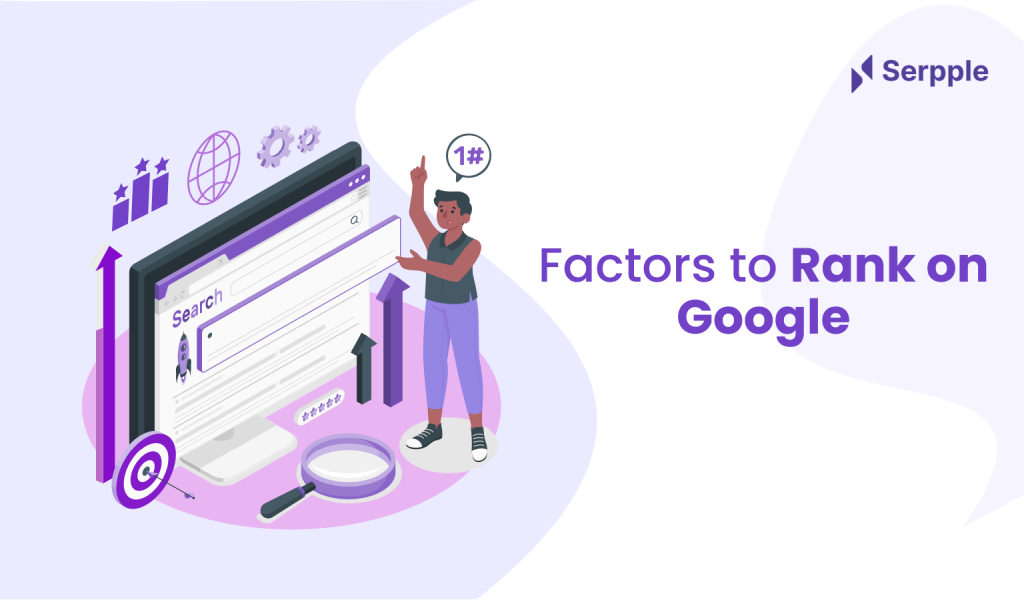
Ever since SEO (Search Engine Optimization) came into existence, people have been trying to figure out what makes a website rank high on Google searches.
It’s just how human nature is. We like to solve puzzles, especially if it can help us do better.
But here’s the thing: there’s no one-size-fits-all route to get to the top of Google searches. Even the best SEO experts don’t know everything about how Google ranks websites, and you don’t need to know it all either.
Wait a minute, can a website rank high without knowing all this stuff?
Yes, it can!
But then, why are we talking about it in this blog post?
Here’s why: this post is all about helping you figure out what’s working in 2024. Knowing these things can boost your website’s ranking – that means it can do better than if you didn’t know these tips.
Also, we have listed out the myths people talk about working on certain factors that to rank your website in high ranking.
Ready? So, let’s dive in and learn together!
What the hack ranking factor is?
Search engines like Google check lots of things when they decide how to rank a webpage. They do this by looking at certain metrics or ‘ranking factors’, and then decide where to place a page in the search results (SERPs) based on the keywords used.
These ranking factors have changed a lot since people first started understanding SEO, and they’ll keep changing in the future too.
In layman’s terms, ranking factors is a rule book that search engines like Google use to decide where a webpage should go in their search results. It helps search engines, to decide if a website is good, useful, and can be trusted.

Let’s start going through these important ranking factors in 2024 one by one.
1. Content Quality
Even after the trail AI has left the year before, in 2024, quality content is still king! Your content must be valuable – if it’s not helpful or interesting, it won’t give your readers anything new.
Suppose you are launching a new business, frame and optimize your content by considering prominent factors that impact Google Rankings and project your new website to rank in Search engines conveniently.
Similarly refreshing old content is essential for ranking factors.
Having unique content is a great strategy for SEO.
Google’s algorithms are smart & can easily figure out if your webpage is useful or not. According to Google’s guidelines, quality should never be sacrificed when creating content.
To make sure your content is top-notch, Google has a few suggestions:
Look at your content. Does it have fresh info or insights? Does it thoroughly explain the topic?
If you use info from other sources, don’t just copy or rewrite it. Add something extra or give it a new twist.
Google also wants your content to be trustworthy. Here are some questions to ask yourself when you create content:
Is the info presented in a way that makes people trust it? Can readers see where the information comes from, or who wrote it?
Is it clear that the person who wrote it reads what they’re talking about?
If someone looked up the website or the author, would they think it’s reliable and knowledgeable?
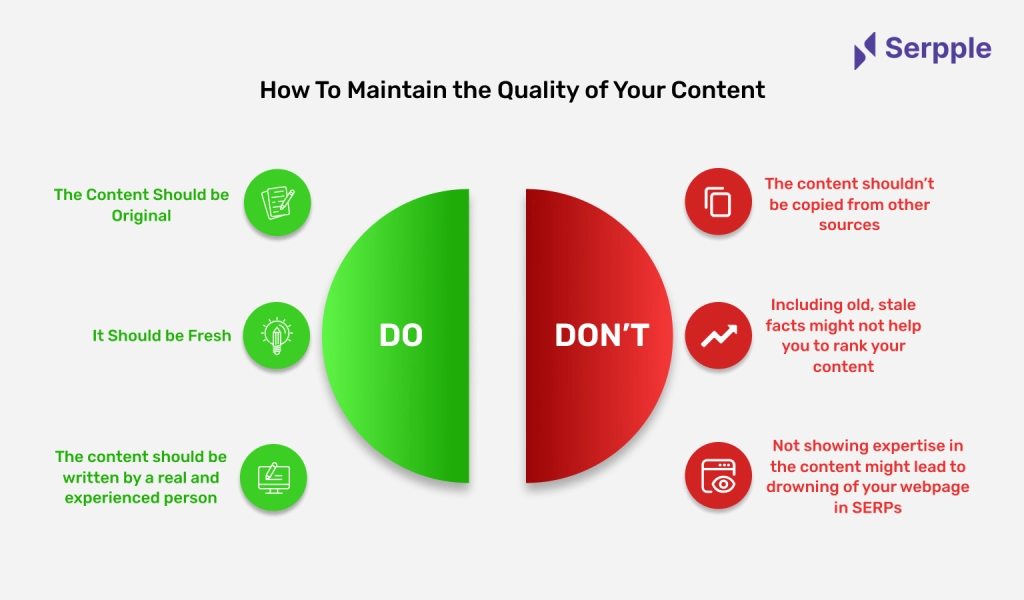
Thinking about these questions when you write can give you a head start over others. It can help your web page move up the ranks on Google search results.
Remember, content quality isn’t just about what you write, but how you write it. You can be the best guide for your readers by sharing your knowledge and expertise in a simple, understandable way.
2. Create Topical Authority for Your Domain
You may have heard of the terms ‘domain authority’ and ‘page authority’. These terms tell us about how strong your website and its pages are in your domain.
However, there’s another concept that’s been around since Google’s Hummingbird update in 2013, but isn’t used as much as it could be: ‘topical authority’.
When used right, topical authority can help your web page reach top spots on Google search results, even without backlinks.
So, what’s topical authority? It’s Google’s way of figuring out what subjects you know a lot about and how much you’ve written on them. To build topical authority, you need to write about all aspects of a subject without sacrificing quality.
Let’s say, for example, you want to be the go-to source for “plumber services near me” if you have a plumber as a service business. Here are some topics you could write about to build your topical authority:
- What tools do plumbers use?
- How much does it cost to fix a tap in New York?
- What’s the difference between bathroom and kitchen plumbing?
- When don’t I need a plumber?
- When do I need a plumber?
- Why it’s essential to hire a residential plumber.
- Why drain cleaning service is crucial for your home.
These are just a few examples. Depending on your business and services, there might be a lot more topics to explore. The main idea is to stick to one subject and cover all aspects of it through blogs, service pages, videos, PPTs, and so on.
To start with you can use tools like Answer the Public to know what people are trying to know just by entering your seed keyword (main keyword)
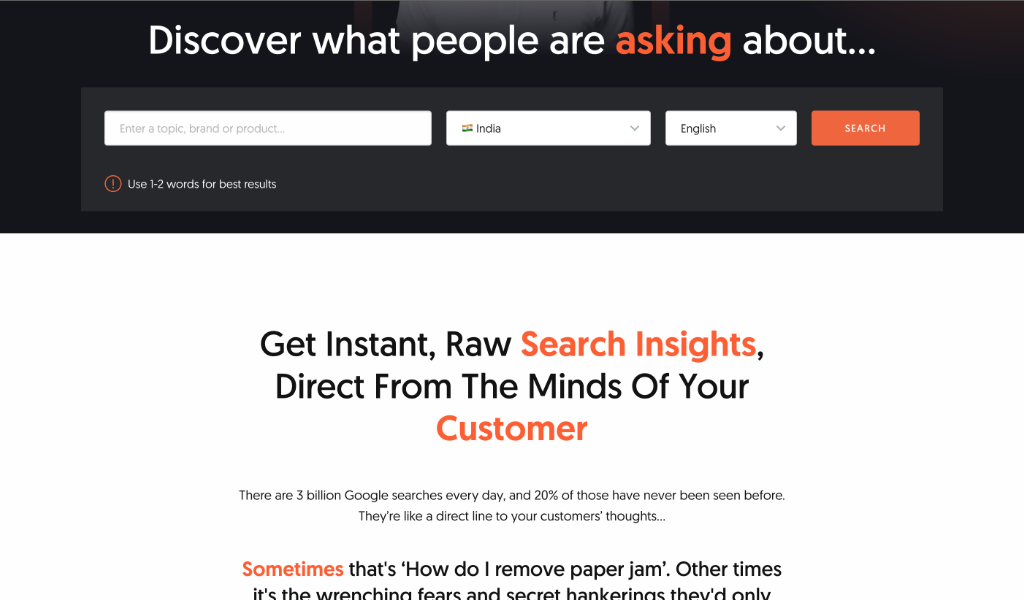
It generates the following questions for you as given below in the picture

Another tool, that I would suggest you use while building your topical maps is AlsoAsked. This tool web scrapes Google and gives you the PAA or People Also Ask questions for a particular query.
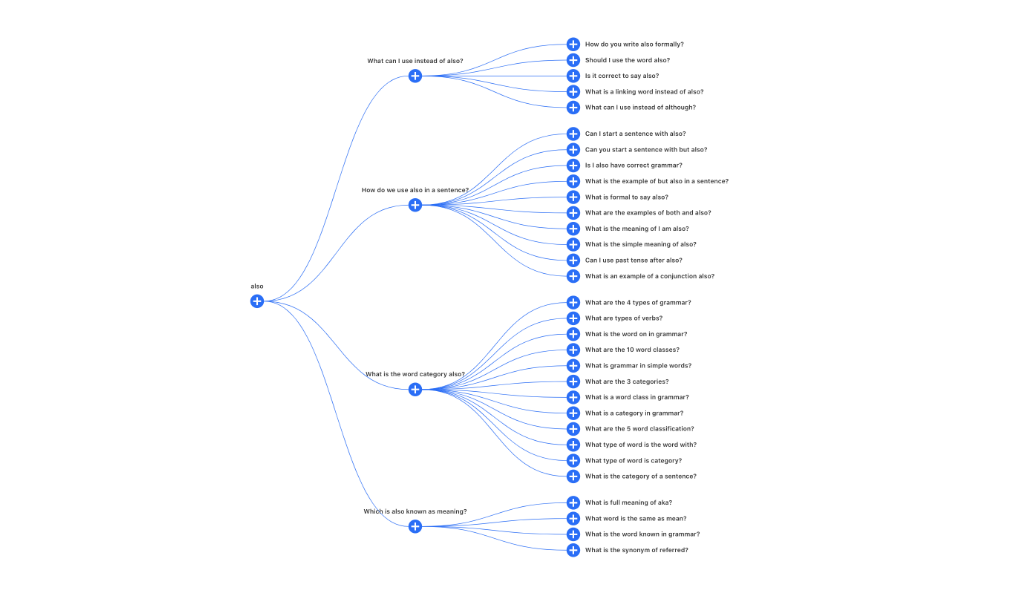
Covering all these topics and making a keyword cluster for topics/questions combined with the answerthepublic tool, you can create a topical map.
Keyword cluster is out of scope for this blog, however, the basic meaning is to combine the same intent keyword and make content on it in depth.
When you focus on covering all the aspects of a topic like this, Google sees that you’re an expert and that you’re passionate about this subject.
Google considers you a topic expert and thus rewards you in SERPs every time a query is searched around your topic.
Building topical authority is like being the best guide for your readers, sharing your knowledge in a simple, clear way. It’s about showing them that you’re the expert they can trust.
3. Freshness of the content matters
Imagine you have two plates of food. One has fresh food, and the other has stale food. Which would you choose?
Just like you’d prefer fresh food, Google prefers content that’s fresh and updated.
Fresh, up-to-date content helps Google see that your website has the latest stuff.
So, how do you keep your content fresh and up-to-date? Make it a habit to update your content every few months. Follow industry experts on social media and stay on top of the latest trends. Iterate it, whenever needed.
Keeping your content fresh is like giving your readers a fresh plate of food every time they visit your website. It shows them that you’re an expert who cares about providing the most accurate, current information.

4. Don’t underestimate the power of internal links
Think of internal links like guideposts on your website, pointing your visitors to extra resources that you offer. If used properly, these links can make your already great content even better.
But, internal links aren’t just helpful for your visitors. They’re also a way to improve your website’s ranking on Google. When search engines find internal links to a certain page, they might give that page a better spot in the search results.
However, remember this: not all internal links are good. Only add links if they’re relevant and helpful to your readers. If a link doesn’t add any value or if it doesn’t match the enhanced context don’t do it.
Here’s a tip: you can use internal links to help pages that aren’t ranking well on Google. To do this, first, go to your Google Search Console or Analytics and find out which pages are getting the most visitors. Then, add internal links from these popular pages to pages that aren’t getting much attention. This could give those less-visited pages a boost!
Having internal links is one of the ways to share your expertise and provide more information.
5. User Experience on your site
Just like a friendly shopkeeper makes a store a nicer place to visit, a good user experience makes your website a nicer place to be.
The more a visitor clicks, interacts, and spends time on your website, the more Google can see that your website is helpful and worth visiting. This could lead to a better spot in the search results.
Google suggests that website owners ask themselves a few questions to check if their website offers a good user experience:
- Can visitors move around easily on your website?
- Are your website’s ‘core web vitals’ in good shape?
- Is your website or content friendly for mobile users?
You can read more about Google’s guidelines for a good user experience here.
While user experience isn’t a direct ranking signal, improving it can help your website indirectly. Once you’ve put these initial steps into practice, you can do A/B testing with your content.
Some tools can help you to A/B test the elements on your webpage to see how users are interacting with your website.
Google Analytics can show you bounce rate, pages per session, and session time.
Tools like Hotjar, Mouseflow, or the free Microsoft Clarity can show you heatmaps and video recordings of user activity.
Taking care of your website’s user experience is like being a good host. It’s about making sure your visitors feel welcome and comfortable, and that they find what they’re looking for easily.
Your reward? Potentially higher rankings on Google. And who knows, your visitors might thank you for the great user experience too!
6. Finding relevant keyword
Keyword research is an indispensable element in the world of SEO. It’s about more than just choosing high-volume search terms.
It’s about understanding what your audience wants to know, then using that information to guide your content strategy.
Before crafting content Keyword research best practices were to be known.
Selecting appropriate keywords that directly address users’ inquiries is a reliable pathway toward higher search engine rankings. Importantly, try to focus on low-competition keywords or those with high search volume but less competing content.
These are low-hanging fruits that can be relatively easy to rank for, making them a critical piece of the SEO puzzle.
While we won’t delve into the whole process of keyword research in this article, it’s worth noting that it plays a significant role in ranking your content.
Keyword research should be one of the first steps you take before crafting your content, providing you with the insights you need to create material that resonantly aligns with your audience’s needs and interests.
Remember, your goal is to become a trusted resource for your audience, and using well-researched keywords to shape relevant, useful content is a powerful way to do just that.
Some Factors that don’t matter to rank in Google Searches
Let’s bring out some myths around ranking factors. Having prepared your what-to-do list in the above section let’s check out what should we avoid looking at whenever we are trying to rank our pages.
1. Content-Length is not a ranking factor
There’s been a lot of chatter lately about the length of your content affecting your ranking on Google. Some people think that the longer your content is, the better. But guess what? That’s not always true.
You might wonder if a 500-word article could outrank a 4,000-word one. Most of the time, the answer is no. That’s because it’s tough to cover a topic in-depth with only 500 words when someone else has used 4,000.
Here’s the key point: it’s not about how many words you write. It’s about the value you provide to your readers. If you can make your point and satisfy your readers with fewer words, then go for it!
Remember, the ultimate goal is to help your readers, not to write the longest article. So focus on creating valuable, meaningful content, no matter how long or short it is.
Here’s a tweet from Google SearchLiaison, an official Google Twitter handle explaining why not to see content length when you are covering a topic.
Reminder. The best word count needed to succeed in Google Search is … not a thing! It doesn’t exist. Write as long or short as needed for people who read your content. That’s aligned with what our ranking systems aim to reward: https://t.co/NaRQqb1SQx #PeopleNotRobots pic.twitter.com/wdjhHn9RR3
— Google SearchLiaison (@searchliaison) June 22, 2023
2. Keyword Density was a ranking factor, but not anymore
Once upon a time, people believed in a magical formula called “keyword density.” They thought that repeating a keyword many times would help their website rank higher on Google.
They stuffed their content with keywords like they were filling a Thanksgiving turkey!
But just like the turkey, this method is stuffed and done. Google is smarter now, and keyword stuffing doesn’t work anymore. It can do more harm than good.
The Florida Update in 2003 confirmed that overdoing keywords can lower your website’s ranking.
So, instead of trying to trick Google with keyword stuffing, focus on writing clear, valuable content that helps your readers. It’s the best way to make both your readers and Google happy. Keyword stuffing is history. The future is quality content.
3. Adding Keywords to meta tags doesn’t work anymore
Let’s take a trip down memory lane. Back in the day, when Google was just getting started, meta tags were like secret codes. They helped Google figure out what keywords a webpage should rank for.
But Google grew up and got smarter. Now, just having keywords in your meta tags doesn’t impact your rankings. Today, it’s more about the quality of your content and the value it brings to your readers.
So, instead of focusing on sprinkling keywords into your meta tags, concentrate on creating excellent content that helps your audience.
That’s what Google and your readers care about. And when you make them happy, your rankings can improve. So let’s focus on what matters most: providing great value to our readers!
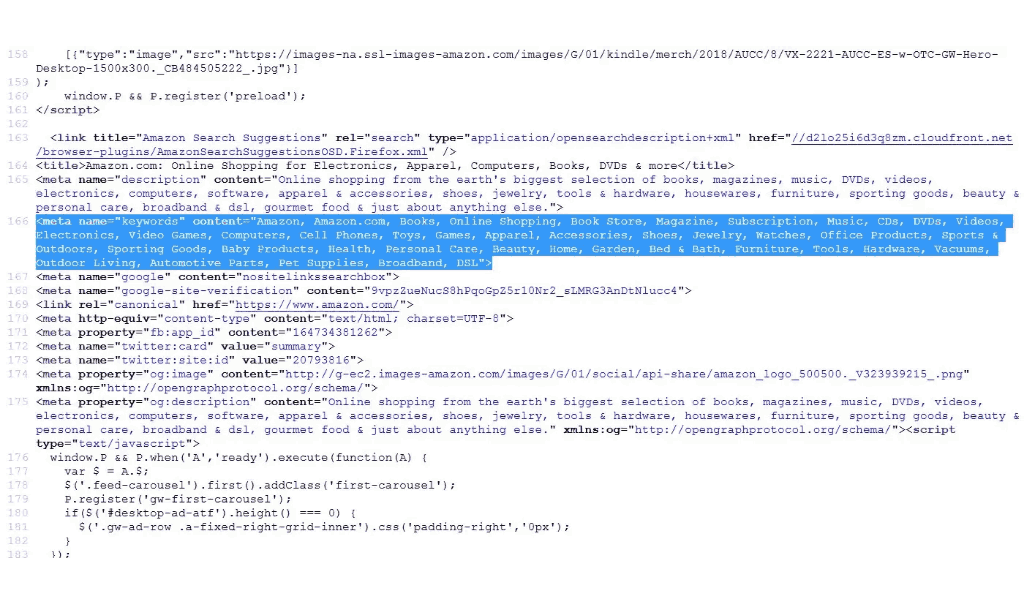
Check keyword rankings with Serpple in 3 easy steps.
Conclusion
To sum it all up, mastering Google’s ranking system can feel like deciphering a mysterious code. But with the right understanding and approach, it can become a rewarding journey. As we’ve explored, a variety of factors contribute to gaining better rankings in Google’s SERPs.
The star of the show is undoubtedly the quality of your content. Always prioritize offering value and information that helps your audience.
Freshness and topical authority also play a pivotal role in propelling your content to the forefront of search results.
Strategically employed internal links and an engaging, user-friendly website experience work wonders too.
However, don’t be misled by myths surrounding content length, keyword density, and the importance of keywords in meta tags. These are no longer the game changers they once were.
Instead of chasing after these outdated strategies, your time is better spent creating well-researched, engaging, and reader-friendly content.
After all, the primary goal is to provide real value to your audience. Succeed in that, and you’ll find that better Google ranking will naturally follow.
So remember, the world of SEO isn’t about tricks and shortcuts. It’s about crafting content that genuinely enriches the lives of your readers and keeping up-to-date with the changing tides of Google’s algorithms. Stay focused on these principles, and you’re well on your way to SEO success. Happy ranking!
Adam White
Posted on December 11, 2023
Adam White is a 20+ year SEO professional who has optimized over 400 websites, built and sold over 20 internet and SaaS businesses all with SEO as the main traffic source. Follow him on Twitter/X




